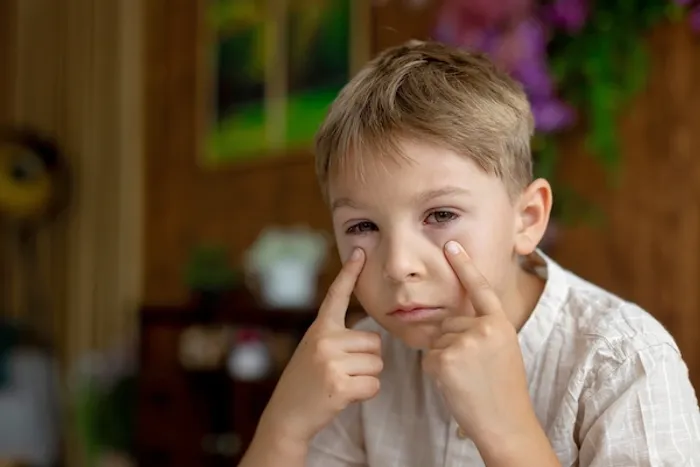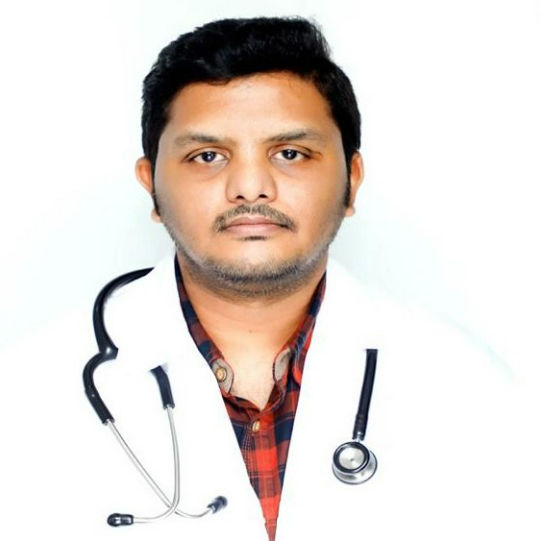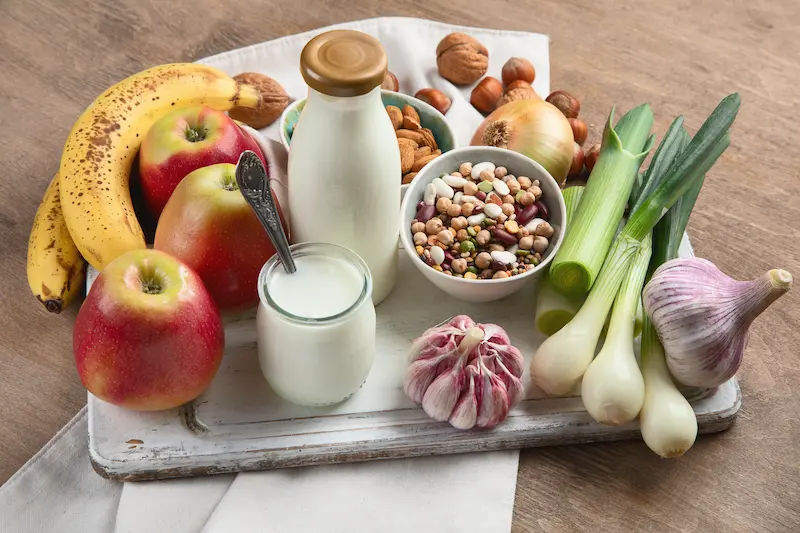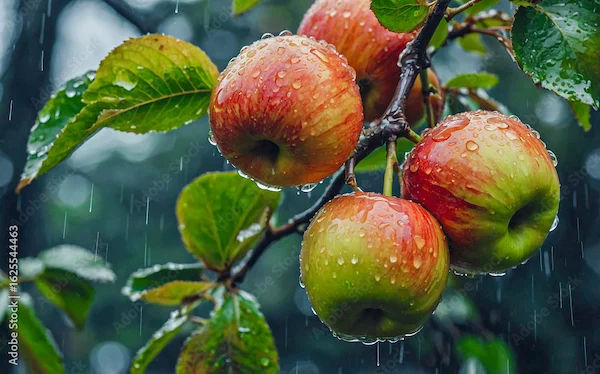A Parent's Guide to Common Summer Illnesses in Children
Keep your children safe this summer with our guide to common illnesses. Learn about dehydration, heatstroke, sunburn, waterborne infections, and practical prevention tips.

Written by Dr. Siri Nallapu
Reviewed by Dr. Dhankecha Mayank Dineshbhai MBBS
Last updated on 13th Jan, 2026

Introduction
Summer is a time for laughter, outdoor adventures, and making memories with your children. However, the same sun and fun that bring joy can also expose kids to a unique set of seasonal health challenges. From the scorching heat to bugs and bacteria in water, children are particularly vulnerable to a range of common summer illnesses. As a parent, knowing what to look for and how to prevent these issues is key to ensuring a healthy and happy season for your little ones.
This comprehensive guide will walk you through the most frequent summer health concerns, from heatstroke and dehydration to waterborne infections and food poisoning. We will provide practical prevention strategies, clear symptom checkers, and advice on when it is crucial to seek professional medical help, so you can spend less time worrying and more time enjoying the sunshine.
Why Are Children More Susceptible to Summer Illness?
Children are not just small adults; their developing bodies make them more prone to summer-related sickness. Understanding these reasons is the first step in effective prevention.
Physiological Differences in Kids
A child's body regulates temperature less efficiently than an adult's. They have a higher metabolic rate, generating more heat, and sweat less effectively, making it harder to cool down. Young children also cannot always recognise or communicate thirst, leading to rapid dehydration. Their larger surface area relative to body weight means they absorb more heat on a hot day.
Behavioural Factors (Play, Hygiene)
Kids live in the moment, often running and playing for hours under the sun without taking breaks for water or shade. Their curiosity leads them to touch everything and sometimes put hands in their mouths, facilitating the spread of germs. Hygiene habits around communal pools or during picnic lunches can be a primary vector for illness.
Consult Top Doctors for Personalised Advice
Heat-Related Illnesses: From Dehydration to Heatstroke
The summer sun poses significant risks, ranging from mild conditions to life-threatening emergencies.
Recognising and Preventing Dehydration
Dehydration is the foundation of many summer illnesses. Signs include dry mouth and tongue, no tears when crying, sunken eyes, decreased urination (fewer than six wet diapers a day for infants, or no urine for eight hours in older children), listlessness, and irritability. Prevention involves encouraging constant fluid intake. Water is best, but for prolonged outdoor activity, a paediatrician-recommended electrolyte solution can be helpful. Offer water frequently rather than waiting for your child to express thirst.
Heat Exhaustion vs. Heat Stroke: Knowing the Critical Difference
It is important to distinguish between heat exhaustion and heat stroke.
Heat Exhaustion: Heavy sweating, cold or clammy skin, weak but fast pulse, nausea, muscle cramps, and fatigue. Action: Move the child to a cool place, give sips of water, and apply cool, wet cloths.
Heat Stroke: Medical emergency. High body temperature (40°C or above), hot/red/dry skin, rapid strong pulse, confusion, and loss of consciousness. Action: Call emergency services immediately, move the child to a cool area, and cool them with cloths or a cool bath while waiting for help.
Water Woes: Infections from Summer Fun
Pools, lakes, and splash pads are breeding grounds for germs that thrive in warm weather.
Swimmer's Ear (Otitis Externa)
Swimmer's ear is an infection of the outer ear canal, caused by water remaining in the ear after swimming. Symptoms include itchiness, redness, discomfort, and pus drainage. Prevent this by drying your child's ears thoroughly, tilting their head to drain water, or using a hairdryer on the cool setting held away from the ear.
Hand, Foot, and Mouth Disease (HFMD)
HFMD is a highly contagious viral illness, common in summer and fall. It spreads through coughs, sneezes, and contact with fluid from blisters or faeces. Symptoms include fever, sore throat, and a characteristic rash with blisters on the hands, feet, and inside the mouth. There is no specific treatment; managing fever and ensuring hydration with cool, soft foods is crucial. Keep your child home until the fever is gone and blisters have healed.
Your Summer Wellness Action Plan: Prevention is Key
A proactive approach is the best defence against common summer illnesses.
The Ultimate Hydration Guide for Kids
Make water easily accessible and fun. Let your child pick a reusable water bottle, and infuse water with berries or cucumber slices for flavour. Offer water-rich fruits and vegetables like watermelon, cucumbers, and oranges. Set reminders for drink breaks every 20 minutes during active play.
Sun Safety: Beyond Just Sunscreen
Sunscreen (SPF 30 or higher, broad-spectrum) is essential, but it should be combined with lightweight, light-coloured clothing, wide-brimmed hats, UV-protection sunglasses, and shade during peak sun intensity (10 AM to 4 PM). Reapply sunscreen every two hours and after swimming or sweating.
When to Seek Professional Medical Help
While most summer illnesses are mild, certain symptoms warrant a doctor's visit. Contact your paediatrician or seek immediate care if your child:
Has a fever lasting more than 48 hours or over 40°C
Shows moderate to severe dehydration (no urine for 8+ hours, sunken eyes, extreme lethargy)
Exhibits symptoms of heatstroke (high fever, hot/dry skin, confusion)
Has a rapidly spreading, painful rash accompanied by fever
Has difficulty breathing
Is unusually irritable, lethargic, or difficult to wake
Experiences severe or persistent vomiting or diarrhoea
If you are unsure or the condition is severe, consult a doctor. For quick advice, you can consult a paediatrician online with Apollo24|7.
Conclusion
A summer filled with play and exploration does not have to be interrupted by common childhood illnesses. Understanding the risks, from intense heat to germs in water, empowers you to take preventative action. Prioritise hydration, maintain sun protection, practice vigilant food and water safety, and trust your instincts as a parent. Preparation is key: pack a summer safety kit, stay informed, and seek professional medical advice when needed. This approach ensures a safe, healthy, and enjoyable summer for you and your children.
Consult Top Doctors for Personalised Advice
Consult Top Doctors for Personalised Advice

Dr. Saheli Dasgupta
Paediatrician
11 Years • MBBS, MD (Paediatrics), Indian Diploma of Paediatric Critical Care Medicine
Kolkata
Sristi Polyclinic, Kolkata

Dr. Akhila Hb
Paediatrician
10 Years • MBBS, MD ( PAEDIATRICS), Fellowship in Asthma and Allergy
Bengaluru
Apollo Medical Center, Marathahalli, Bengaluru
(50+ Patients)

Dr. Guruprasad N
Paediatrician
7 Years • MBBS, MD Peadiatrics, DNB pediatrics
Bangalore
Apollo Clinic Bellandur, Bangalore
Dr. J N V. Bhuvaneswararao
Paediatrician
24 Years • MBBS,Diploma in Child Health
Vijayawada
SRI SRINIVASA CHILDRENS HOSPITAL, Vijayawada

Dr. Aravind Meka
Paediatrician
11 Years • MBBS, MD (Paediatrics),Diploma in pediatric allergy and asthma
Hyderabad
Dr Aravind M Clinic, Hyderabad


.webp)

